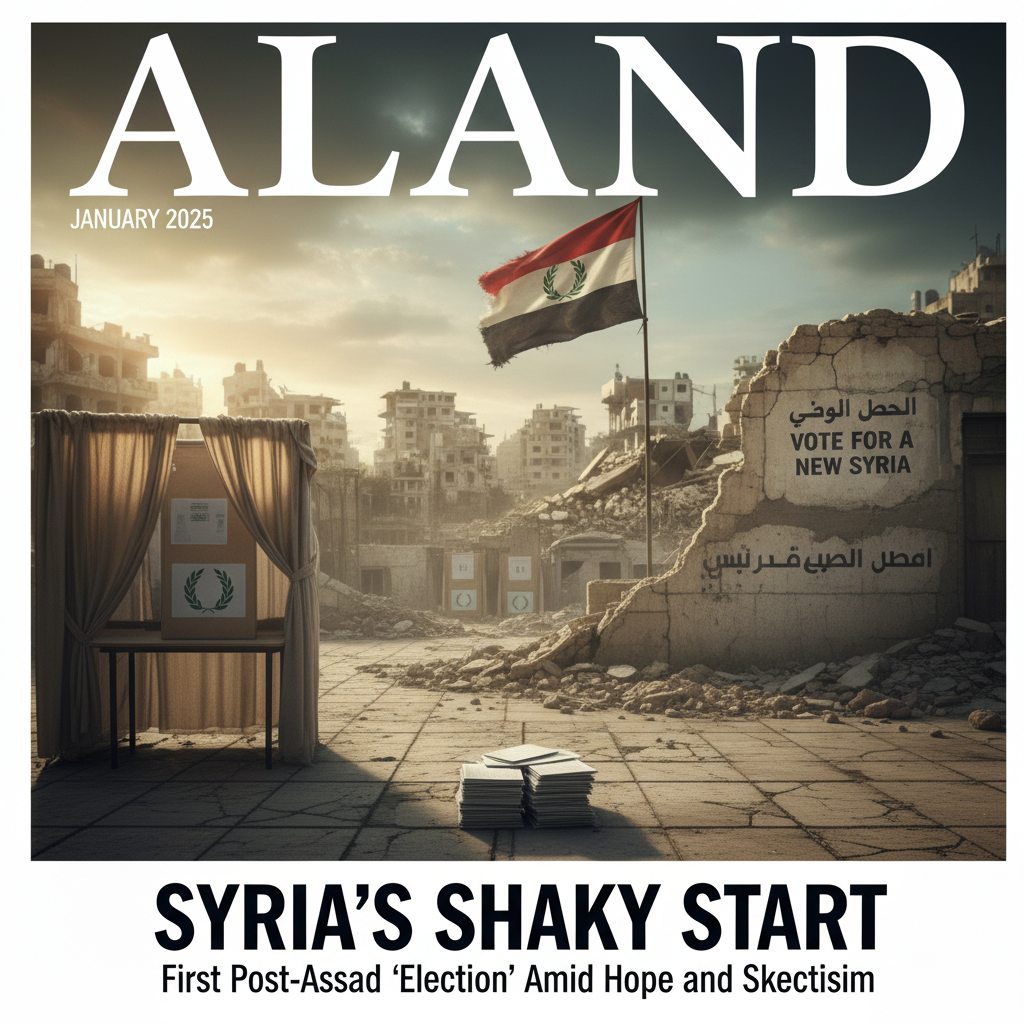Syria Holds First Post-Assad 'Election' Amid Hope and Skepticism
Published Date: 5th Oct, 2025
DAMASCUS, SYRIA – October 5, 2025 – Syria today marked a significant, if cautious, step in its political transition, as it held its first parliamentary election since the overthrow of long-time autocratic ruler Bashar al-Assad in December 2024. The indirect vote, which is electing members to a revamped 210-seat People's Assembly, is being hailed by the transitional government as a necessary move towards establishing a new, representative legislative body after nearly 14 years of civil war.
However, the process—which does not include a popular vote for ordinary citizens—has drawn criticism from analysts and civil society groups who argue the temporary electoral system risks centralizing power under interim President Ahmed al-Sharaa.
An Indirect System: Election by College
The provisional legislative body, set to serve a 30-month term, is being formed through a unique, two-tiered system:
Elected Seats (Two-thirds): 140 of the 210 seats are being filled by a highly selective body of approximately 6,000 "electoral college" members across the country. These electors themselves were chosen by district-level subcommittees, a process critics say lacks transparency and independent oversight.
Appointed Seats (One-third): The remaining 70 seats in the People's Assembly will be directly appointed by President al-Sharaa, a move authorities state is intended to ensure representation for minorities and 'highly skilled technocrats.'
Authorities defended the indirect nature of the elections, citing the immense logistical challenges of conducting a popular vote. Millions of Syrians remain internally or externally displaced by the civil war, making it nearly impossible to create an accurate voter registry or safely manage the logistics of a nationwide general election.
"The interim authorities have an almost impossible task of establishing a working government in the wake of decades of war and displacement," said one Damascus-based analyst. "But even accounting for these difficulties, the indirect process, where a small number of hand-picked electors determine the outcome, gives the executive near-total control over the composition of the legislature."
Hope for Change in Polling Stations
Despite the criticism, some participants within the electoral colleges expressed a sense of hope and civic duty, drawing a sharp contrast with the pre-2024 elections, which were widely viewed as a sham under the Ba'ath party.
"This is the first time I've ever participated in a democratic electoral process without outside pressure," said a voter in Aleppo. In Damascus, a new member of the electoral college noted that, unlike the pre-Assad era, the selection was a chance for a genuinely diverse assembly. "The new assembly includes all sects and groups," she stated, "it's the first time the ballot box truly rules—when the results are not prearranged."
A significant outcome was observed in the coastal city of Latakia, an area previously considered an Alawite stronghold. Reports suggest several Sunni candidates were elected by the local college, signaling potential shifts in political influence in areas once dominated by the former regime's loyalists.
Regional Postponements and Representation Concerns
The election was not held nationwide. Authorities indefinitely postponed voting in three crucial regions: the Druze-majority southern province of Sweida, and the Kurdish-controlled northeastern provinces of Raqqa and Hasakah, citing security concerns and political instability.
This exclusion means approximately 32 seats in the new assembly will remain empty, raising significant concerns about the parliament's ability to represent the entirety of the fractured nation. Furthermore, there are worries that the new system's vague eligibility criteria—which bars those linked to 'secessionist' or 'outlawed groups'—could be used to exclude certain political and ethnic voices.
President al-Sharaa, in a speech today, hailed the vote as a "historic moment," applauding the government's ability "to engage in an electoral process suited for its current circumstances" in a short period of time.
The new People's Assembly will face the immediate, monumental task of preparing the groundwork for a future popular vote, drafting a new constitution, and enacting laws to address Syria's profound economic crisis and the persistent, complex challenges of post-war transitional justice. For now, this legislative body—the first since the fall of the Assad dynasty—represents a critical but highly scrutinized test of the new government's commitment to a more inclusive and stable future.
Date: 5th Oct, 2025

